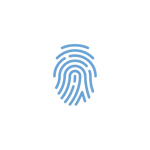.png?width=412&height=232&name=andrea%20(1).png)
Heartland Bank is committed to protecting your personal and financial information with the latest security technology and fraud monitoring tools. But we're also committed to educating and supporting you, so you feel confident and empowered every time you bank with us.
Did you know?
Nebraskans reported losing $42.5 million to scams in 2024, a figure that has tripled over the last four years. The most frequently reported types of fraud and scams in Nebraska for 2024 included: Imposter Scams, Identity Theft, Online Shopping Scams, Investment Scams, and Elder Fraud.
Unified Defense Against Fraud

Our associates are dedicated to protecting you from scams and fraud. With extensive, ongoing training, they are equipped to help detect fraudulent activity quickly and accurately. We prioritize your safety and peace of mind, working tirelessly to safeguard your personal and financial information.

Our EnFact software monitors your debit card for suspicious activity, alerting you via text, phone call, or email if anything unusual is detected. If fraud is confirmed, an EnFact analyst will assist in securing your account. All debit card customers are automatically enrolled in this free service.

Education is crucial in the fight against fraud. We prioritize helping our customers stay informed about the latest scams and protective measures. By providing valuable resources and support, we empower you to safeguard your personal and financial information.
We want you to feel secure every time you bank, whether you're checking your balance, making a purchase, or managing your cards on the go. These tools put real protection right at your fingertips, helping you spot suspicious activity early, strengthen your login security, and safeguard your personal information.

Secure, convenient banking from anywhere.
Do More With HB Mobile:
✔ Check Balances & Activity
✔ Lock/Unlock Your Debit Card
✔ Set Travel Notifications

Real-time notifications that help you spot suspicious activity fast.
Includes Alerts For:
✔ Purchases & Withdrawals
✔ Transfers & Deposits
✔ Login Attemps & Profile Changes

Your free built-in credit monitoring tool.
Credit Sense Helps You:
✔ Check Your Credit Score
✔ Get Alerts for Unusual Activity
✔ Understand & Track Your Score
.png?width=900&height=470&name=Social%20Share%20(8).png)
Local businesses are targeted, too. If you own or manage a business, explore our specialized tools and resources designed to help safeguard what you work so hard for: your business. Click on the image below to explore more.
Your security matters to us, and we want you to feel confident every time you bank. Here are answers to the most common questions our customers ask, all in one easy place.
If you clicked on a suspicious link, take action right away, even if nothing seems wrong yet.
If something doesn't feel right, trust your instincts. Acting quickly can help prevent fraud.
If you're unsure, stop and contact us directly. We will never ask you to verify personal information through email, text, or a link.
Call Heartland Bank immediately. The sooner you reach out, the faster we can help protect your accounts. Then visit IdentityTheft.gov for personalized next steps.
EnFact is our debit card fraud monitoring system. If it detects unusual activity, you may receive a text from 37268 or a phone call.
It will never ask for your PIN, full Social Security Number, or full Card Number.
Heartland Bank will never send emails requesting your personal or confidential information. We will never ask you to “verify” your information or click on a special link to do so. If you receive a message like this, it is not from us.
Stop.
Pause before responding to any unexpected or suspicious email—especially those using urgent or alarming language.
Look.
Read the message carefully. Ask yourself why the sender would truly need this information. Do not be intimidated by threats or deadlines, and don’t rely solely on the name or email address in the “From” field—these can easily be spoofed.
Call.
Contact the organization directly using a trusted, verified phone number—not the one provided in the email.
Act.
If you believe your information has been compromised, act immediately. Notify your financial institution, closely monitor your account statements and credit reports, and report the incident to the three major credit reporting agencies:
Equifax: 800-525-6285
Experian: 888-EXPERIAN
TransUnion: 800-680-7289
Heartland Bank is committed to protecting your confidential financial information. The strongest defense against fraud is awareness, and we believe in working hand-in-hand with our customers to stay one step ahead of fraudsters. Our website provides helpful tips and trusted resources designed to educate and empower you to protect yourself.
Privacy Policies
Protecting your privacy is one of our highest priorities. Our strict privacy policy safeguards your personal information and is actively enforced. You can review our Privacy Policy anytime on our website.
Encryption Technology
We use advanced encryption software to protect your data. This technology scrambles information shared between you and the bank so it can only be read by authorized parties.
Due to recently increased security requirements, we at Heartland Bank are no longer able to support version 10 or older of Internet Explorer. We are sorry for this inconvenience, and encourage you to upgrade to more secure options such as Internet Explorer 11, Google Chrome, or Mozilla Firefox.